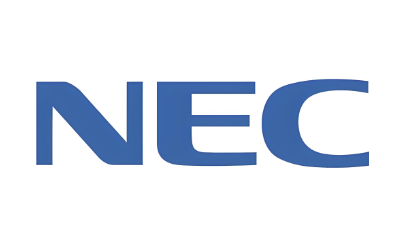NEC Electronics, a former division of Japan’s NEC Corporation, was a pivotal player in the global semiconductor industry, renowned for its advanced integrated circuits (ICs), microprocessors, and electronic components. Though its organizational structure evolved over time—merging with Renesas Technology in 2010 to form Renesas Electronics—NEC Electronics left an indelible mark on sectors ranging from consumer electronics to automotive and industrial systems.
Founded as a core segment of NEC Corporation, NEC Electronics emerged as a standalone entity focused on semiconductor design and manufacturing in the late 20th century. Leveraging NEC’s decades-long expertise in electronics, the division specialized in developing cutting-edge semiconductors tailored to emerging technological needs. By the 2000s, it had established itself as a leader in embedded systems, microcontrollers (MCUs), and system-on-chips (SoCs), catering to global markets with a emphasis on reliability and performance.
In 2010, NEC Electronics merged with Renesas Technology (a joint venture of Hitachi and Mitsubishi Electric) to form Renesas Electronics, a move aimed at consolidating resources and strengthening competitiveness in the global semiconductor landscape. Despite this integration, the innovations and product lines pioneered by NEC Electronics remain foundational to modern semiconductor solutions.
NEC Electronics was celebrated for its diverse portfolio of semiconductor products, designed to power critical applications across industries:
-
Microcontrollers (MCUs): High-performance MCUs with integrated peripherals, widely used in automotive systems (engine control, safety features), industrial automation, and consumer devices. These chips emphasized low power consumption and real-time processing capabilities.
-
System-on-Chips (SoCs): Integrated circuits combining microprocessors, memory, and specialized hardware (e.g., graphics processing units, connectivity modules) for applications in smartphones, digital TVs, and IoT devices.
-
Digital Signal Processors (DSPs): Processors optimized for signal processing tasks in audio/video equipment, telecommunications infrastructure, and radar systems, enabling high-speed data manipulation.
-
Power Management ICs (PMICs): Components regulating power distribution in electronic devices, enhancing energy efficiency in laptops, mobile phones, and industrial machinery.
-
Automotive Semiconductors: A flagship category, including ICs for engine control units (ECUs), advanced driver-assistance systems (ADAS), and in-vehicle networking (CAN/LIN buses), meeting strict automotive safety standards (ISO 26262).
-
Memory Devices: Specialized memory solutions such as SRAM (Static Random-Access Memory) and ROM (Read-Only Memory), used in embedded systems requiring fast access and stable performance.
NEC Electronics played a critical role in enabling technological advancements across key sectors:
-
Automotive Industry: As a top supplier of automotive semiconductors, it supported the shift toward smarter, safer vehicles. Its MCUs and SoCs powered anti-lock braking systems (ABS), airbag controllers, and early ADAS features, setting benchmarks for reliability in harsh automotive environments.
-
Consumer Electronics: Semiconductors for digital cameras, DVD players, and home appliances, driving miniaturization and enhanced functionality in everyday devices.
-
Telecommunications: Chips for network equipment, including routers, switches, and base stations, supporting the expansion of 3G and early 4G mobile networks.
-
Industrial Automation: Controllers and sensors for factory robotics, programmable logic controllers (PLCs), and smart grid systems, contributing to industrial digitization.
NEC Electronics’ focus on R&D and collaboration with industry partners fostered breakthroughs in semiconductor design, particularly in low-power technology and automotive-grade reliability. Its emphasis on system-level solutions—integrating hardware and software—paved the way for modern embedded systems, where seamless performance across components is critical.
Today, its legacy endures in Renesas Electronics, which continues to innovate in automotive semiconductors, IoT devices, and industrial solutions. The foundational technologies developed by NEC Electronics remain integral to addressing contemporary challenges, such as electrification, autonomous driving, and sustainable energy systems.
